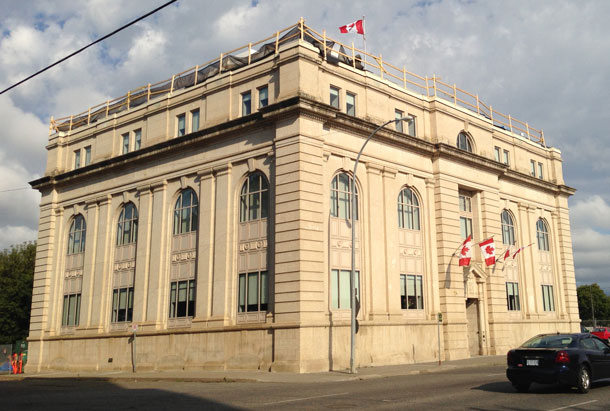
CBSA Keeping Canada Safer
THUNDER BAY – Over the Canada Day and 4th of July long summer weekends, many Canadians and Americans cross the United States / Canada border.
The Canada Border Services Agency (CBSA) facilitates the entry of legitimate travellers and goods, while protecting the safety and security of Canadians and ensuring that Canada’s border is not used for illegal activity. This work is carried out by CBSA border services officers who ensure that the people, goods and conveyances entering Canada meet all requirements and are compliant with Canadian law.
In May 2014, CBSA officers at the Pigeon River port of entry (POE) processed 49,028 travellers in 24,982 vehicles, which represent no increase or decrease in travellers, and a one-percent increase in vehicles from May 2013. More than 1,674 international travellers entered by bus.
Immigration highlights
In May, officers at the Pigeon River POE conducted more than 564 immigration interviews resulting in 17 Visitor Records, 37 Work Permits, and six Temporary Resident Permits. In 24 cases, individuals decided to voluntarily withdraw their applications to enter Canada.
On May 17, two U.S. citizens arrived at the POE and were referred for an immigration examination. During the interview, officers discovered that the driver had been convicted of two counts of passing false cheques. The passenger of the vehicle had no identification; however, when her identity was confirmed, officers discovered that she had three active U.S. warrants for her arrest for drug related offenses.
The travellers claimed they were lost and were not actually seeking entry to Canada. They were allowed to leave Canada and returned to the United States.
On May 24, a U.S. resident arrived at the POE seeking entry to Canada and was referred for an immigration interview. CBSA officers conducted a criminal record check and discovered that the individual had a conviction for first degree sexual assault against a child, fourth-degree sexual assault and unlawful phone use threatening harm.
The individual was deemed inadmissible to Canada due to his criminality and was given the option of voluntarily withdrawing his application to enter Canada. He returned to the United States.
Certain foreign nationals who do not meet the requirements to overcome their criminal inadmissibility may be allowed to enter Canada with a one-time only fee-exempt temporary resident permit. For more information, please visit the Citizenship and Immigration Canada Web site.
Customs highlights
In May, CBSA officers conducted approximately 4,555 secondary examinations for customs purposes or on behalf of other government departments, initiated nine seizure actions, two arrests and issued additional written warnings for undeclared or undervalued goods.
On May 1, two Canadian residents returned from a one-day trip to the United States. They declared purchasing a truck camper for $500. After further processing and investigation, officers discovered that the truck camper was listed for $5,900 on the Internet. The traveller was asked again to provide the amount that he paid for the camper and finally stated that he paid $4,800. The camper was seized for undervaluation and was released back to the individual upon payment of a $2,591.33 penalty. Had the camper been declared at its proper value, the individual would have paid approximately $624 in taxes.
On May 22, one returning Canadian resident declared $459 for ATV parts after being in the United States for one day. The vehicle was referred for a secondary examination, and additional items were found during the exam. The individual stated that the additional goods were replacement ATV parts. After further investigation, a receipt was discovered for $3,856.07 and the traveller admitted that he paid that amount for the parts. The vehicle and goods were seized for undervaluation and were released back to the individual upon payment of a $1,542.43 penalty. Had the goods been properly declared, the applicable taxes would have amounted to approximately $501.
The CBSA reminds travellers to truthfully declare all purchases and goods received outside of Canada upon their return. Smuggling, undervaluation and other Customs Act offences may lead to seizure and/or prosecution in a court of law.

